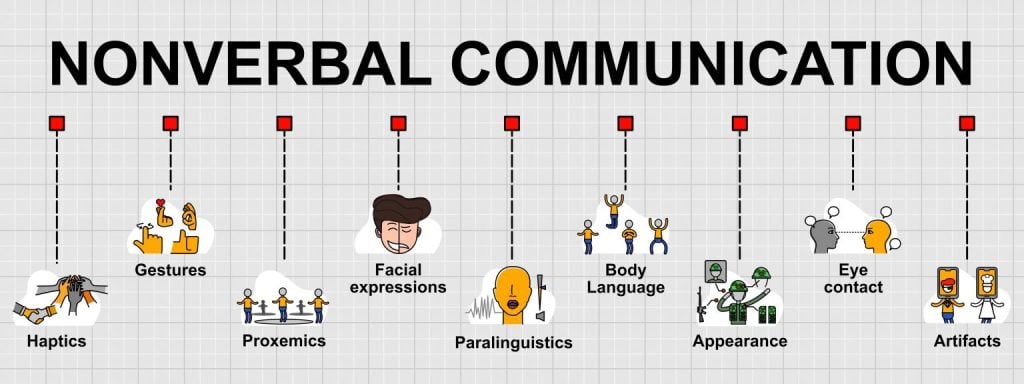Public speaking is a critical skill for individuals aspiring to join the defense services. The ability to communicate ideas effectively, influence audiences, and project confidence can significantly impact one’s performance in the Selection Board (SSB) interviews. Many candidates, however, struggle with public speaking due to anxiety, self-consciousness, or lack of experience. Fortunately, with the right strategies and consistent practice, anyone can develop into a confident and impactful public speaker.
In this comprehensive guide, we will explore 9 Quick Tips to Improve Your Public Speaking Skills and excel in your SSB interview. From establishing a strong foundation through consistent practice to leveraging powerful vocal techniques and body language, these tips will empower you to captivate your audience and make a lasting impression.
1. Embrace Public Speaking as a Lifelong Skill
Public speaking is not just a one-time event; it is an essential skill that can be honed and refined over time. Recognize that effective communication is a fundamental aspect of everyday life, from casual conversations with friends to formal presentations in professional settings. Shift your mindset to view public speaking as a natural extension of your everyday interactions, rather than a daunting task to be dreaded.
Reframe Your Perspective
Understand that public speaking is not inherently more complex than a casual discussion. It is simply a larger audience and a more structured format. By reframing your perspective, you can reduce the anxiety and perceived complexity associated with public speaking, allowing you to approach it with a more confident and relaxed demeanor.
Embrace Opportunities for Practice
Seek out opportunities to practice public speaking, even in informal settings. Engage in discussions with your peers, family, or colleagues, and pay attention to your communication style, tone, and body language. This regular practice will help you become more comfortable and confident in expressing your ideas in front of others.
Also Read | Next Step After NDA Written: Get Ready for SSB
2. Develop a Structured Preparation Routine
Effective public speaking requires thorough preparation. Develop a structured routine that allows you to research your topic, organize your thoughts, and rehearse your delivery.
Conduct Comprehensive Research
Gather relevant information, facts, and data to support your presentation. Ensure that you have a deep understanding of the topic and can provide your audience with valuable insights and perspectives.
Outline Your Presentation
Create a clear and logical structure for your speech or presentation. Develop an introduction, body, and conclusion that flow seamlessly and effectively convey your key messages.
Practice, Practice, Practice
Rehearse your presentation multiple times, both in private and in front of others. This will help you become more comfortable with the content, refine your delivery, and identify areas for improvement.
3. Speak Slowly and Deliberately
One of the most common mistakes made by public speakers is speaking too quickly. Slow down your pace to ensure that your audience can clearly understand each word and phrase.
Pace Your Delivery
Consciously focus on speaking at a slower, more deliberate pace. This will not only improve your audience’s comprehension but also convey a sense of confidence and composure.
Use Pauses Effectively
Incorporate strategic pauses throughout your speech to allow your audience to process the information and emphasize important points. These moments of silence can create a powerful impact and enhance the overall effectiveness of your delivery.
Modulate Your Tone
Vary your pitch, volume, and inflection to add dynamism and interest to your speech. Experiment with different vocal techniques, such as emphasizing key words or phrases, to keep your audience engaged.
4. Leverage Nonverbal Communication
Your body language and nonverbal cues can have a significant impact on your audience’s perception of you and the effectiveness of your message.
Maintain Confident Posture
Stand tall, with your shoulders back and your head held high. Avoid fidgeting or nervous gestures, as these can undermine your confidence and credibility.
Use Purposeful Gestures
Incorporate natural, meaningful hand gestures to reinforce your words and add emphasis to your points. Avoid distracting or repetitive movements that can detract from your message.
Maintain Eye Contact
Engage with your audience by making direct eye contact. This creates a sense of connection and conveys your sincerity and engagement with the topic.
Also Read | 7 Simple Strategies to Handle Interview Anxiety
5. Embrace the Silence
Many public speakers feel the need to fill every moment with speech, but strategic pauses can be just as powerful as your words.
Leverage Silence for Impact
Use moments of silence to allow your audience to absorb and reflect on your message. This can create a sense of anticipation and emphasize the importance of your key points.
Pause for Emphasis
Incorporate pauses before or after significant statements or ideas. This technique can help draw your audience’s attention and highlight the significance of your message.
Manage Nerves with Silence
If you find yourself feeling anxious or flustered during your speech, take a brief pause to collect your thoughts and regain your composure. This can help you refocus and deliver your message with greater confidence.
6. Incorporate Relevant Facts and Data
While personal experiences and anecdotes can be engaging, providing your audience with factual information and data can lend credibility and authority to your presentation.
Conduct Thorough Research
Gather reliable and up-to-date information to support your key points. This could include statistics, industry trends, or relevant case studies that can help illustrate your message.
Contextualize the Data
When presenting facts and figures, ensure that you provide the necessary context to help your audience understand the significance and relevance of the information.
Avoid Overwhelming Your Audience
Strike a balance between providing informative data and maintaining a clear, concise, and engaging delivery. Overwhelming your audience with too much information can detract from the overall impact of your presentation.
7. Embrace the Power of Storytelling
Storytelling is a powerful tool that can help you connect with your audience on an emotional level and make your message more memorable.
Craft Compelling Narratives
Identify personal experiences, anecdotes, or hypothetical scenarios that can effectively illustrate your key points. Weave these narratives into your presentation to create a more engaging and relatable experience for your audience.
Leverage Emotive Language
Use descriptive and evocative language to paint a vivid picture for your audience. This can help them better visualize and connect with the story you are sharing.
Highlight Relevant Takeaways
Ensure that the stories you share are directly relevant to the main themes and objectives of your presentation. This will help reinforce your key messages and ensure that your audience understands the significance of the narratives.
8. Embrace the Unexpected
Flexibility and adaptability are essential qualities for successful public speakers. Be prepared to navigate unexpected situations or audience reactions with grace and poise.
Anticipate and Prepare for Contingencies
Identify potential challenges or disruptions that could arise during your presentation, such as technical difficulties, audience questions, or unexpected interruptions. Develop contingency plans to address these situations effectively.
Maintain Composure Under Pressure
If something unexpected occurs, resist the urge to panic or become flustered. Take a deep breath, remain calm, and adapt your approach to address the situation with confidence and professionalism.
Embrace Audience Engagement
Welcome audience participation and feedback, as this can provide valuable insights and opportunities to further engage your listeners. Respond to questions or comments with empathy and respect, and use them as a chance to deepen your connection with the audience.
Also Read | 12 Easy Tips for Better Concentration
9. Continuously Seek Feedback and Improvement
Becoming a skilled public speaker is an ongoing journey of learning and growth. Seek out constructive feedback and opportunities for self-reflection to continually refine your abilities.
Solicit Feedback from Others
Ask trusted friends, colleagues, or mentors to provide honest and constructive feedback on your public speaking performance. This can help you identify areas for improvement and develop a clear action plan for enhancing your skills.
Analyze Your Own Performance
Review recordings of your presentations or speeches to critically evaluate your delivery, body language, and overall effectiveness. Identify strengths and weaknesses, and use this information to inform your future preparation and practice.
Continuously Expand Your Knowledge
Stay up-to-date with the latest trends, techniques, and best practices in public speaking. Attend workshops, read relevant articles or books, and engage with other experienced public speakers to continually expand your knowledge and refine your skills.
By implementing these nine proven tips, you can unlock your full potential as a confident and impactful public speaker, positioning yourself for success in your SSB interview and beyond. Remember, public speaking is a skill that can be developed and refined over time, so embrace the journey and enjoy the process of becoming a more effective communicator.
FAQs
1. What are the 7 Ps of public speaking?
The 7 P’s are: pronunciation, pace, pause, punch, power, passion, and posture.
2. What are the 7 C’s of public speaking?
The 7 Cs of Communication guide you in communicating more effectively. These principles represent: clear, concise, concrete, correct, coherent, complete, and courteous communication. While there are some variations, these core elements remain essential.
3. What are the 6 C’s of public speaking?
They are Clear, Concise, Correct, Contextual, Concrete, and Caring. Mastering these Six C’s not only improves your communication skills but also makes you a more engaging and influential person overall.
4. What are the 7 elements of public speaking?
The communication process in speech involves seven key elements: 1) speaker, 2) listener, 3) message, 4) channel, 5) interference, 6) feedback, and 7) situation. The speaker acts as the source of information, sharing or expressing their thoughts on a particular topic.
5. What are the 4 styles of public speaking?
There are four primary methods, or styles, of delivering a speech: manuscript, memorized, extemporaneous, and impromptu. Each method serves different purposes in various communication settings.













